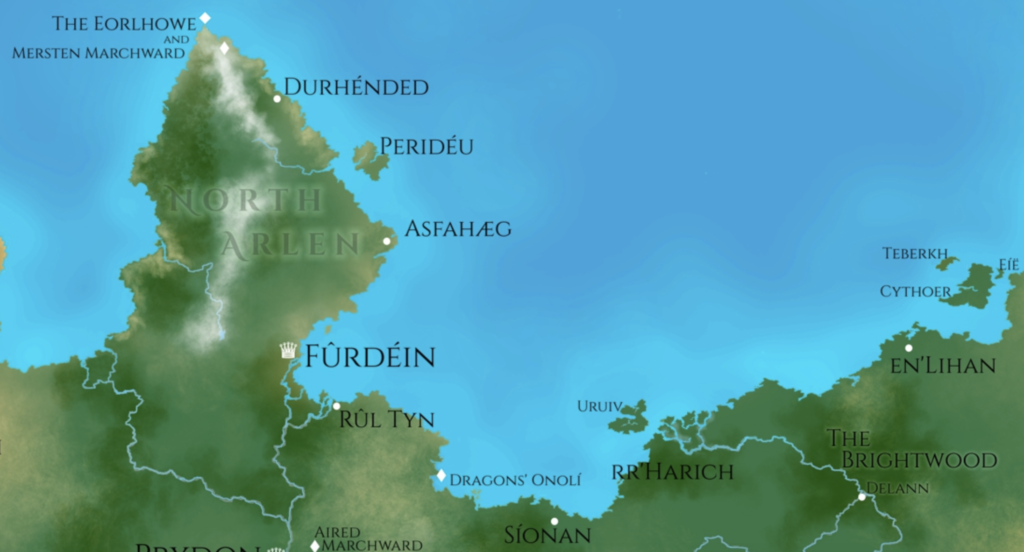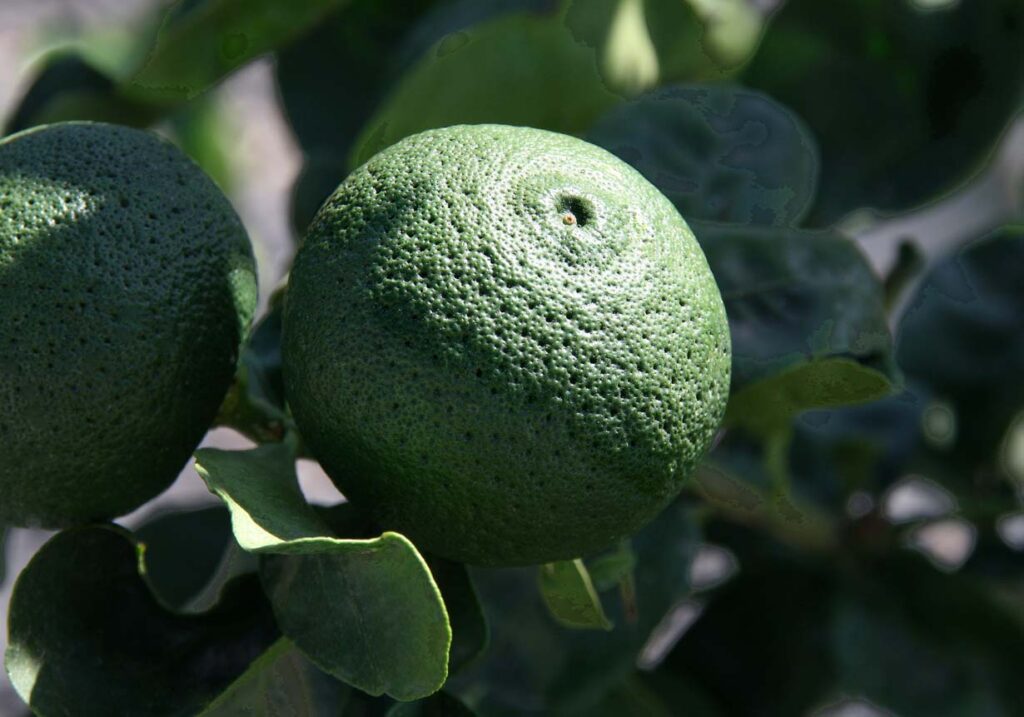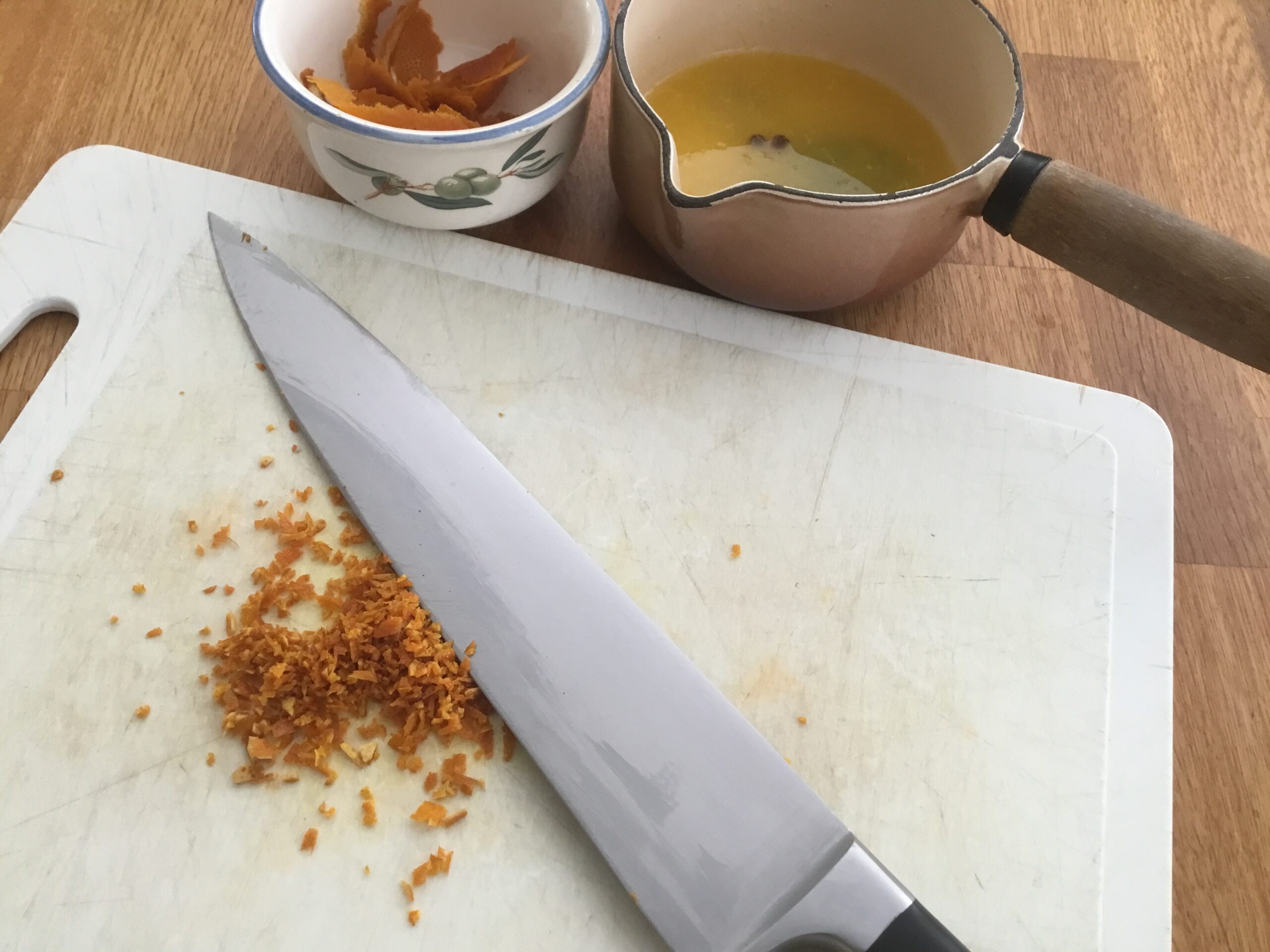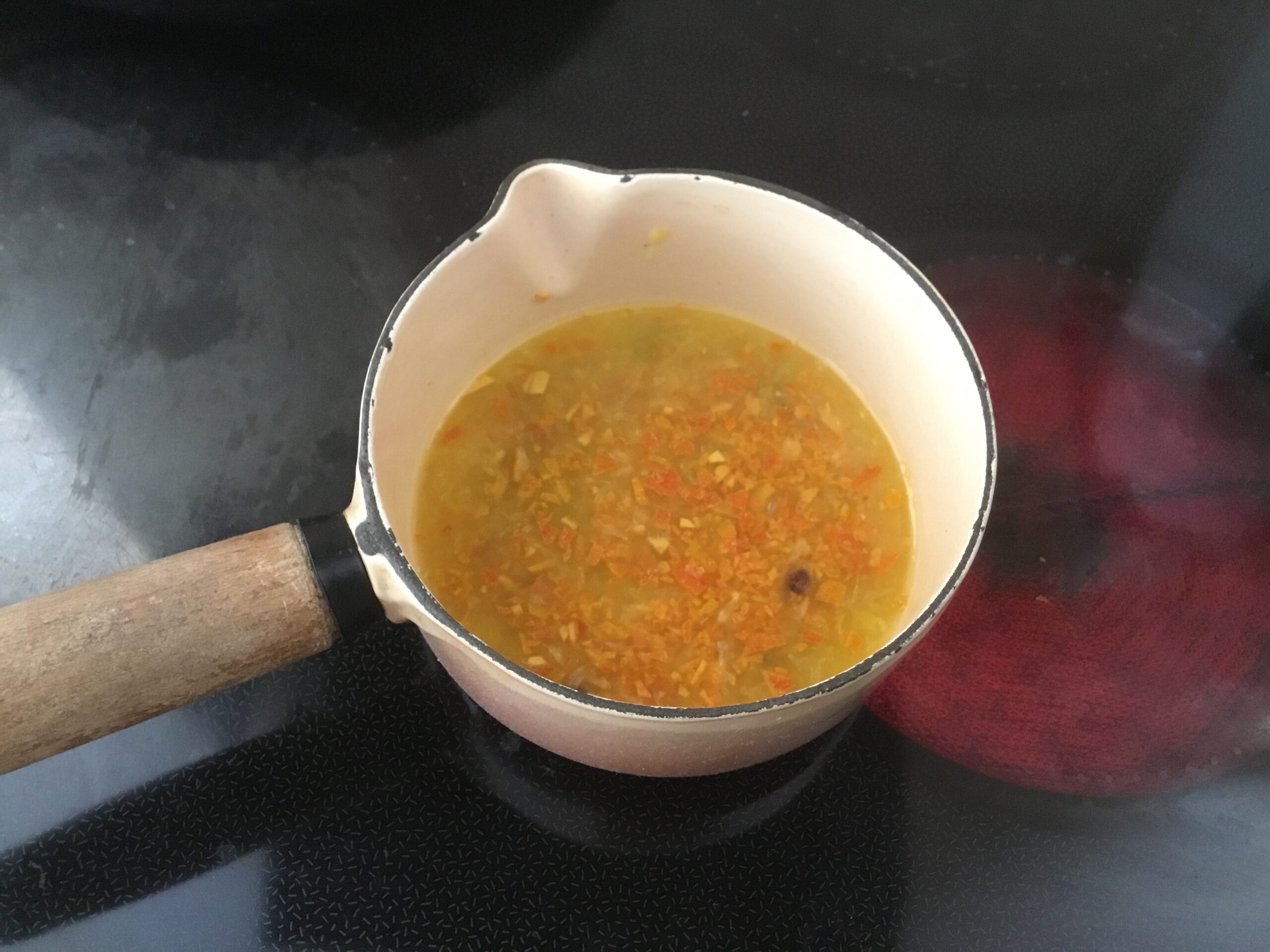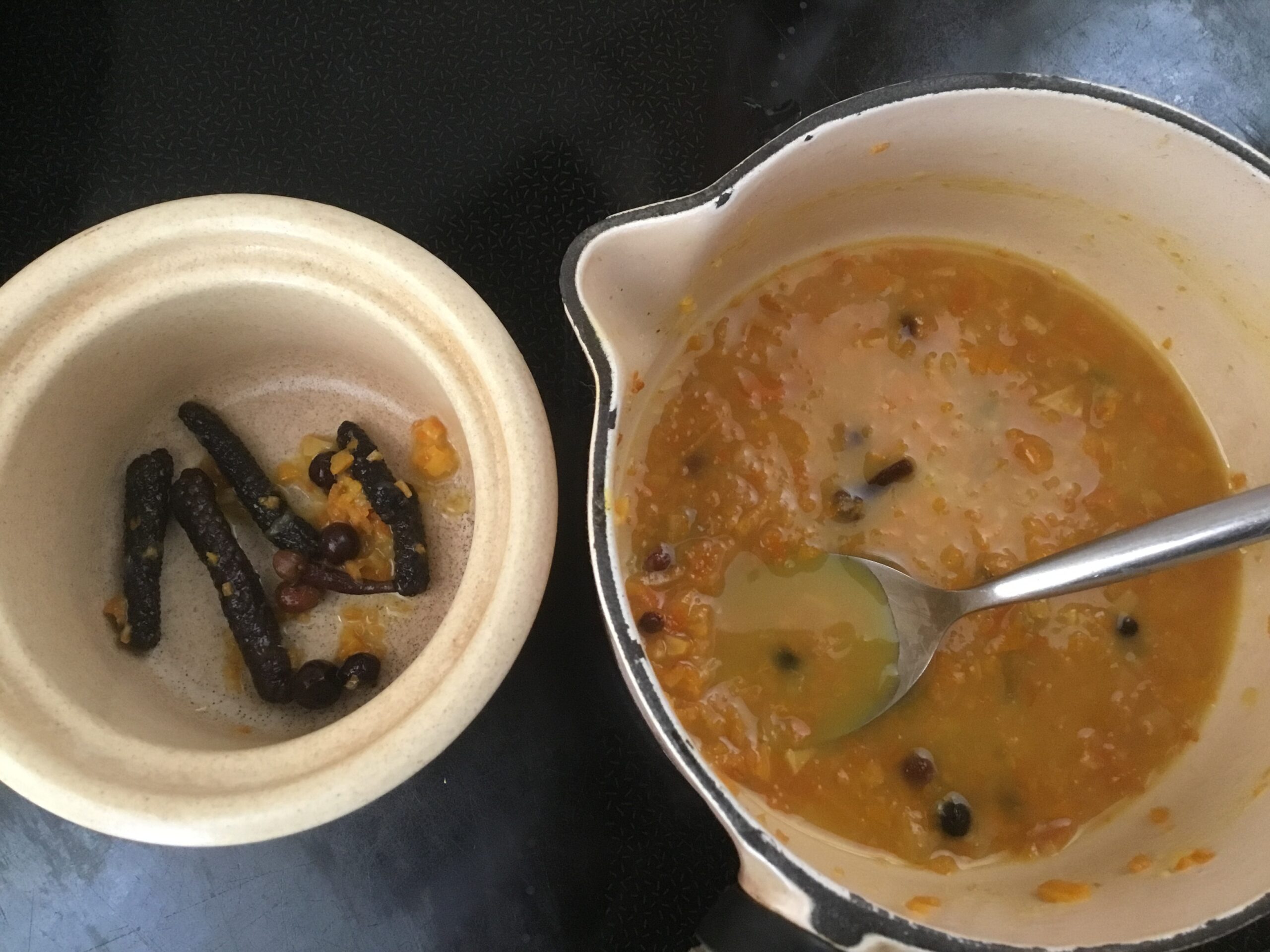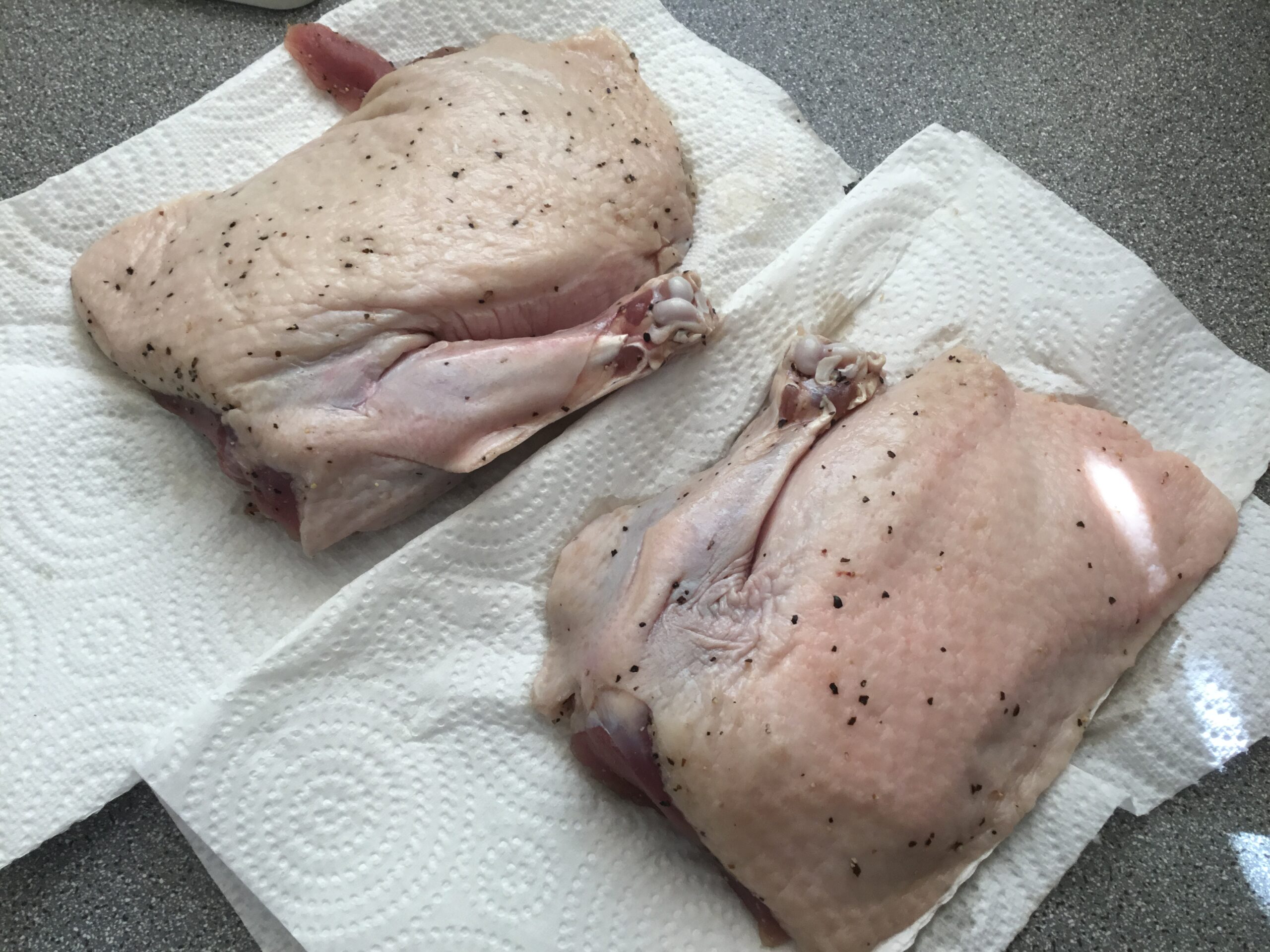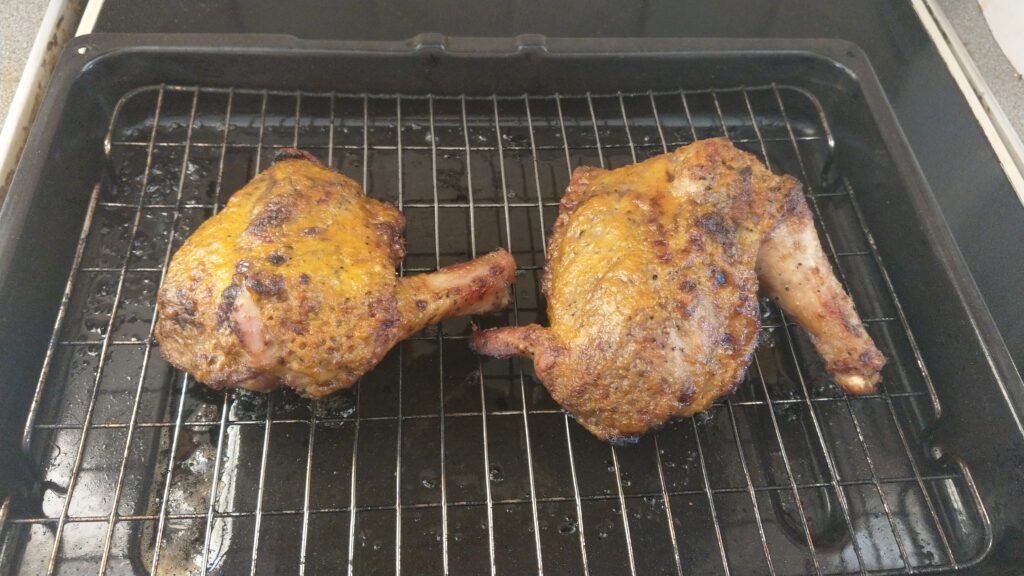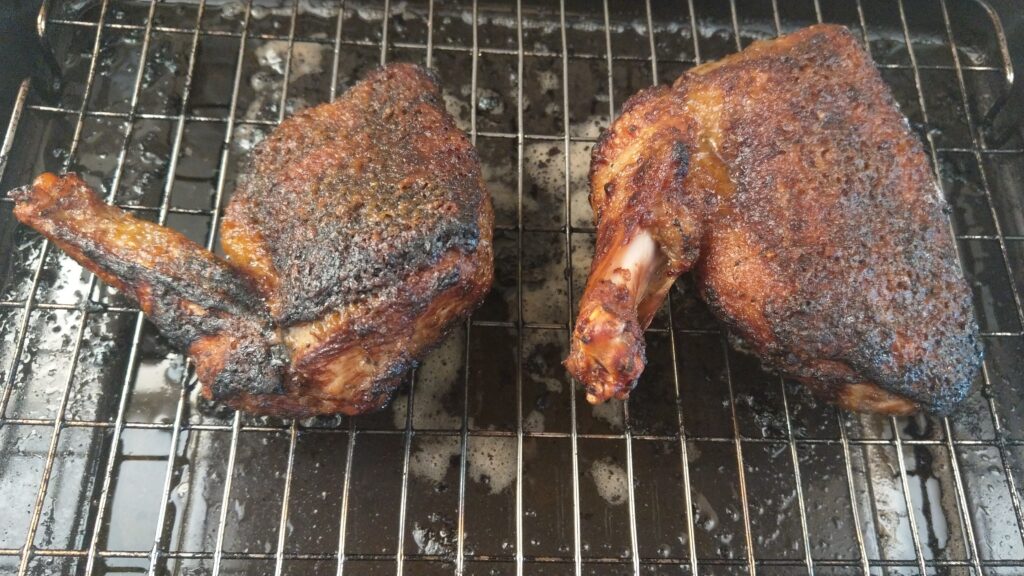Elne amarûntehe mes-tiyaun (Twice-cooked duck in sour-thorn)
“A cross-seasonal favorite with a powerful citrus kick
- Background
- Recipe
North Arlen is climatically by far the warmest of the Four Realms, which should probably be no surprise considering that it’s much closer to the equator of the Middle Kingdoms Earth-analogue than any other known place on that continent. (The Eorlhowe, at the furthest northern tip of the North Arlene peninsula, would correspond closely to the 20-degrees-South latitude if it was mapped onto our own globe.)
Waterfowl are a favorite seasonal food resource for people all up and down those coasts, depending on the various species’ preferences for differing parts of North Arlen at different times in the migration schedule. Duck, teal, crane and wild goose are all likely to turn up on the table any time between the ninetieth of Spring or so and the first of Winter (though traditionally during mid-Winter none of these but goose [and domesticated ones at that] are eaten until after the intercalary solstice-adjacent Dreadnights are over, for reasons spelled out in a number of different regional folktales).
A lot of treatments for regional marine and riverine fish dishes—also always a mainstay of the North Arlene diet—have slipped into the local repertoire of recipes for teal, crane and goose, and particularly duck. This is one of them.
Because of North Arlen’s warm climate, the numerous Kingdoms-native citrus breeds thrive all up and down the peninsula—though most energetically on the eastern coastline that gives onto the more sheltered waters of the Great Sea north of Arlen and Darthen. One of these varieties, and one of the most plentiful, is what we may as well call Citrus sphaerocarpa medioregnis—usually called (N. Arlene) amarûnte or (Arlene) amarunthë: “sour-thorn”, with reference to the tree’s fearsome inch-long defensive weaponry. (The Darthene word is murunhe, the Steldene maranhté; there is no native Ladhain name). The closest cognate for this species on our Earth is C. sphaerocarpa proper, the Japanese name for which is Kabosu.
The our-Earth-Asian version of this fruit is thought to be a hybrid between the Ichang papeda and the mandarin orange. What its botanical history in the Kingdoms’ world might have been is beyond the scope of this article, but the sour-thorn closely matches the kabosu’s juiciness, freshness of flavor and sour bite. As such it’s a perfect foil for the (sometimes excessive) richness of duck, and also effectively offsets the gaminess of the meat for those who don’t care so much for that flavor in their waterfowl.
For those of us living on the wrong side of the planet to have ready access to fresh kabosu (or for that matter, to fresh yuzu, which wouldn’t be a bad substitute in this dish), it becomes necessary to look for a relatively bitter variant of something more readily available. Seville orange, used green or even when ripe, works better with this dish than either lemon or lime. (…And banish any “duck a l’orange” ideas from the start. This is not a sweet dish. Its spicery lends it some warmth, but the final result is sharp, and cuts the fattiness of the duck very nicely (insofar as that needs cutting. You can always have some duck-fat fries on the side…).
To start: Acquire a couple of boned duck breasts or suprémes, ideally with the skins still on. Lightly prick the skins with a fork (and don’t pierce through to the meat below, if you can help it).
Zest two Seville or other bitter oranges: or small navel oranges if you can’t lay hands on the Sevilles. (If the oranges’ skins have dried, simmer them gently for fifteen or twenty minutes with water to which has been added a couple of cloves, some black peppercorns, and a few buds of long pepper if you can get it. Even without the spices, this approach works well with any dried-up orange from which you want to recover the zest—an option sometimes necessary for Middle Kingdoms cooks even in the balmy north, when the fruits go out of season and dry out in winter storage).
Finely chop the orange zest. If there’s any juice left inside the zested oranges, squeeze it out and put it aside. Otherwise, juice two fresher oranges.
Put this juice (and/or the juice from the vintage oranges), along with the chopped zest, in a small saucepan and bring to a simmer along with a couple of cloves, four or five black peppercorns, a juniper berry or so, and (if you can get it) two or three buds of long pepper (Piper longum: the Middle Kingdoms cognate of this spice is a great favorite in North Arlene cooking). Simmer low and slow until the juice and zest have together reduced to a thickish consistency.
Remove from heat and allow to cool enough to be handled easily. Spoon out the whole spices, except for a small bud of the long pepper…
…and either (a) puree all this by grinding with a mortar and pestle, or (b) liquidize by other mechanical means. (I used the spice grinding attachment of our Kenwood, which has by far the best and sharpest blade for small work of any of our kitchen equipment.)
When pureed, soften in the microwave (or by beating) a couple/few tablespoons of butter, and mix this well with the puree. Set this mixture aside while you do the first cooking of the duck.
Pat the duck very dry with paper towels (because any moisture could cause even more ruckus in the next step than is going to happen anyway). Put a cold pan over fairly high heat, and immediately put your duck breasts in it skin side down. After about two minutes, when they’ve colored, turn them over and give them another two minutes’ cooking time. (The pan won’t be dry any more, believe me. You’ll be astonished at the amount of fat that comes out of that skin.)
When this process is finished, remove the breasts to a roasting pan/tin with a rack. Place them skin side up first and slather them with about half the orange juice/zest/butter puree, and a grind (or shake) or so of black pepper.
Put them into an oven heated to 180C/375F and roast them for 15 minutes. Then take the pan out, turn the dusk breasts over, slather them again with what remains of the citrus puree, and put them back in the oven for another 15 minutes.
When the cooking time is done, remove the roasting pan from the oven and allow the cooked duck breasts to rest for at least five minutes — ten is better.
Serve with the side dish of your choice. (In North Arlen this would probably be some kind of buttered, steamed scarlet runner bean, and/or a spiced parsnip mash.)
Enjoy!
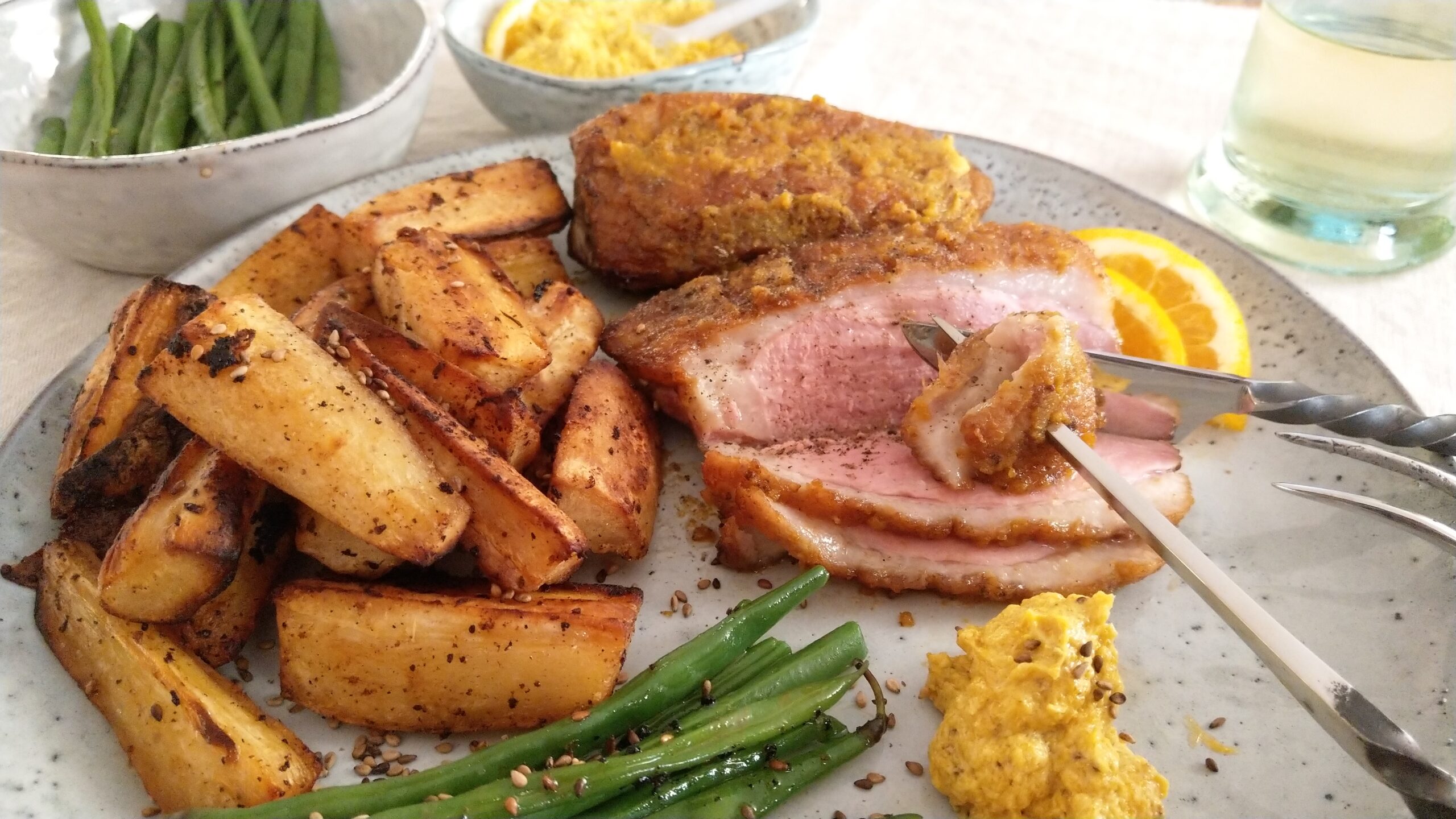
Meat, poultry, fast food



